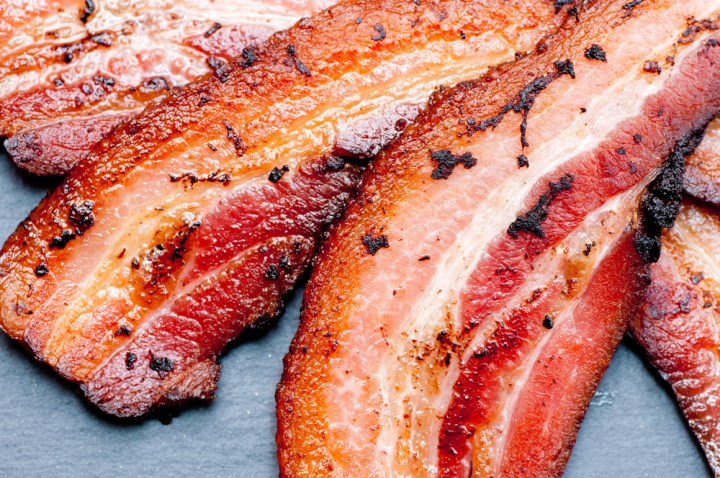
However, the reaction to the World Health Organization’s (WHO) recent report that “eating processed meat such as sausages and ham causes cancer…” was a mixture of sadness, panic, and joy. Fans turned to social media declaring that even cancer couldn’t stop their love for meat; non-fans seemingly delighted in and celebrated the possibility that other people might get cancer but not them.
Processed meat dating: Find your bacon soulmate with Sizzl, the Oscar Mayer dating app
In addition to processed meats being linked to cancer, the report notes that red meat may also be carcinogenic, placing nearly every type of meat product that people who love meat love, in the same category as smoking and asbestos. While the news understandably upset meat eaters who have likely spent their entire lives consuming large amounts of meat deemed dangerous in the report, vegetarians took to social media with hashtags such as #smugvegetarian to say, “I told you so,” and smokers got a once-in-a-lifetime chance to wag their fingers at people who might now be considered unhealthier than themselves.
We’ve been quiet lately, but had to get on the #smugvegetarian train today. Vegetarian diet is the only diet.
— The Real Veggie (@TheRealVeg) October 26, 2015
Bad news about #bacon bet there’s a fair few #SmugVegetarian people out there celebrating with an ‘told ya so’ dance pic.twitter.com/0RFQwTjOcJ — Popcorn (@PopcornOutdoor) October 26, 2015
All smokers can feel a little bit smug today- #WHO says processed meat causes cancer. #carcinogenic At least our packs told us so.
— Waqqas Mir (@wordoflaw) October 26, 2015
The North American Meat Industry, among those upset about the recent WHO study, called the report, “dramatic and alarmist overreach,” while taking to social media themselves to respond. Janet Riley, Senior Vice President of Public Affairs at North American Meat also issued a statement via the meatnewsnetwork YouTube channel basically stating, you should keep eating meat because if you pay attention to the list of cancer-causing agents, “living on this planet is a hazard.”
Perspective: of the 940 agents reviewed by IARC, only 1 found NOT to pose a cancer hazard, a chem in yoga pants. https://t.co/0C1iw30J9B — Janet Riley (@queenofwien) October 26, 2015
Which side are you on? And does it really matter?
